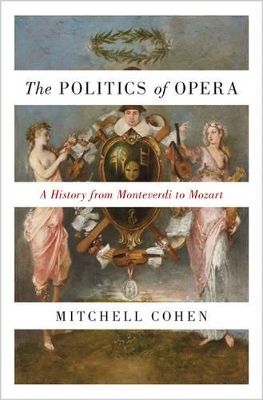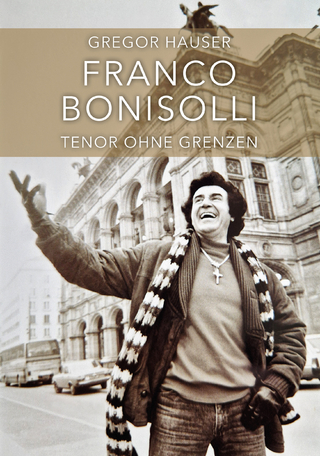
The Politics of Opera
Princeton University Press (Verlag)
978-0-691-17502-7 (ISBN)
A wide-ranging look at the interplay of opera and political ideas through the centuries The Politics of Opera takes readers on a fascinating journey into the entwined development of opera and politics, from the Renaissance through the turn of the nineteenth century. What political backdrops have shaped opera? How has opera conveyed the political ideas of its times? Delving into European history and thought and an array of music by such greats as Lully, Rameau, and Mozart, Mitchell Cohen reveals how politics--through story lines, symbols, harmonies, and musical motifs--has played an operatic role both robust and sotto voce. Cohen begins with opera's emergence under Medici absolutism in Florence during the late Renaissance--where debates by humanists, including Galileo's father, led to the first operas in the late sixteenth century. Taking readers to Mantua and Venice, where composer Claudio Monteverdi flourished, Cohen examines how early operatic works like Orfeo used mythology to reflect on governance and policy issues of the day, such as state jurisdictions and immigration.
Cohen explores France in the ages of Louis XIV and the Enlightenment and Vienna before and during the French Revolution, where the deceptive lightness of Mozart's masterpieces touched on the havoc of misrule and hidden abuses of power. Cohen also looks at smaller works, including a one-act opera written and composed by philosopher Jean-Jacques Rousseau. Essential characters, ancient and modern, make appearances throughout: Nero, Seneca, Machiavelli, Mazarin, Fenelon, Metastasio, Beaumarchais, da Ponte, and many more. An engrossing book that will interest all who love opera and are intrigued by politics, The Politics of Opera offers a compelling investigation into the intersections of music and the state.
Mitchell Cohen is professor of political science at Baruch College and the Graduate Center of the City University of New York and editor emeritus of Dissent magazine. His books include Zion and State and The Wager of Lucien Goldmann (Princeton). His writing has appeared in such publications as the New York Times and the Times Literary Supplement. He lives in New York City.
List of Illustrations ix
Prologue Mixtures, Boundaries, Parallels xiii
Acknowledgments xxxi
Part 1 Metamorphoses, Ancient to Modern
1 Who Rules? 3
2 Reigning Voices 18
Intermedio (I) 37
3 Laws and Laurels 40
Part 2 Mantua to Venice
4 Orpheus's Ways 55
Intermedio (II) 64
5 A Prince Decides on Naxos 71
Intermedio (III) 81
6 The Political Scenario of Monteverdi's Venice 84
7 Revealing Ulysses 101
Intermedio (IV) 119
8 Spectacles 124
Part 3 Under French Suns
9 Agitations and Absolutes 143
10 In the Winds The Decades of Pernucio and Telemachus 167
Un court intermede 188
11 Vertical, Horizontal 197
12 Nature and Its Discontents 216
Part 4 Ancients in Modernity
13 From Elysium to Utica 225
Zwischenspiel (I) 244
14 From Crete to Rome 252
Part 5 ". . . And although I am no Count . . ."
15 Masters and Servants 267
Zwischenspiel (II) 292
16 Gaits of History 301
17 Looking for Enlightenment 335
18 Tamino's Wonder 353
Sarastro's Sabbatical This Is Not a Finale 373
Appendix "Backstage" 391
Notes 407
Select Bibliography 449
Index 465
| Erscheinungsdatum | 05.10.2017 |
|---|---|
| Zusatzinfo | 20 halftones. |
| Verlagsort | New Jersey |
| Sprache | englisch |
| Maße | 152 x 235 mm |
| Gewicht | 822 g |
| Themenwelt | Kunst / Musik / Theater ► Musik ► Klassik / Oper / Musical |
| Sozialwissenschaften ► Politik / Verwaltung ► Politische Theorie | |
| ISBN-10 | 0-691-17502-0 / 0691175020 |
| ISBN-13 | 978-0-691-17502-7 / 9780691175027 |
| Zustand | Neuware |
| Haben Sie eine Frage zum Produkt? |
aus dem Bereich


